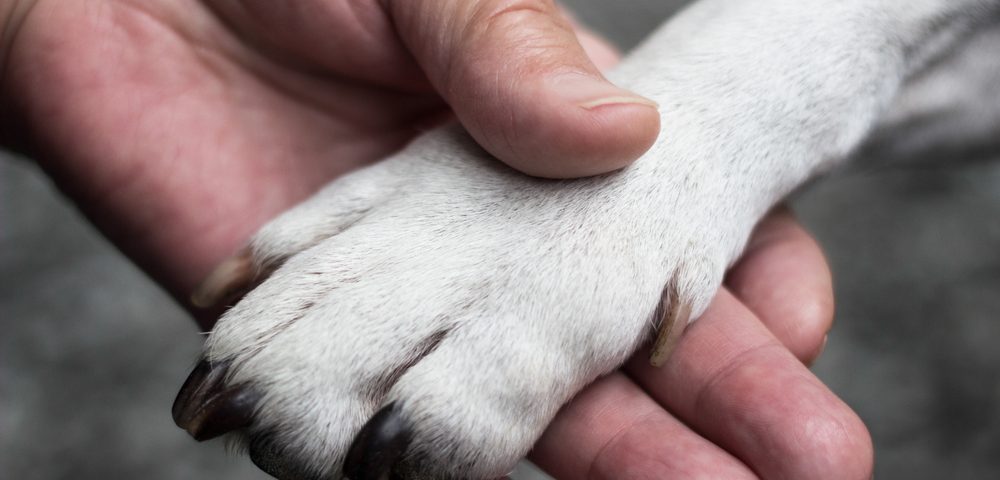Therapy Dogs Offer Benefits for Neuropathy Patients

Pets can provide companionship and help with basic tasks to neuropathy patients and their caregivers. For familial amyloid polyneuropathy patients, dogs can complement the emotional support and service provided by a caregiver.
Growing up, my wife’s family always had a dog. Even before my mother-in-law began experiencing peripheral neuropathy symptoms, she was used to canine companionship. After her diagnosis, her dog kept her company on the days when her symptoms were severe and she was unable to go to work.
Following are some of the benefits that dog ownership can bring to patients and their caregivers:
Companionship
Dogs make excellent companions for patients who are alone for extended periods. A dog provides the comfort of nonverbal communication. The presence of a dog may help a neuropathy patient take their mind off their worries when their caregiver is absent.
A service dog can assist patients with simple household tasks. As the severity of peripheral neuropathy symptoms may prevent them from accomplishing routine chores, a trained service dog can be taught to perform basic jobs such as turning lights on and off, preventing falls, retrieving items, and barking to alert caregivers or neighbors in case of emergency. A dog also provides additional security in the home.
Healing effects and therapy
A dog’s presence may provide a therapeutic effect for neuropathy patients. This calming effect may be due to the bond shared with their pet, as well as the release of endorphins that comes from stroking their coat. Patients may also feel safer when accompanied by a companion dog.
Caring for a dog may help to divert a patient’s focus away from their symptoms and toward something external, allowing them to rediscover a sense of purpose and stability.
Training takes time
Training a dog takes an investment of time and financial resources. My mother-in-law’s toy fox terrier, Titus, went through a training course, but he’s still not perfectly behaved. While he serves as a therapy dog and companion, he can be unruly and has occasional toileting incidents.
Patients who don’t have the time or resources to invest in training their own dog may benefit from programs that offer therapy dog sessions on a temporary or recurring basis. Programs such as those provided by The Good Dog Foundation can help patients and caregivers find therapy dogs for regular visits. Whether temporary or permanent, the presence of a dog in the home provides neuropathy patients with the benefits of companionship and service.
***
Note: FAP News Today is strictly a news and information website about the disease. It does not provide medical advice, diagnosis, or treatment. This content is not intended to be a substitute for professional medical advice, diagnosis, or treatment. Always seek the advice of your physician or other qualified health provider with any questions you may have regarding a medical condition. Never disregard professional medical advice or delay in seeking it because of something you have read on this website. The opinions expressed in this column are not those of FAP News Today or its parent company, Bionews Services, and are intended to spark discussion about issues pertaining to familial amyloid polyneuropathy.







Leave a comment
Fill in the required fields to post. Your email address will not be published.